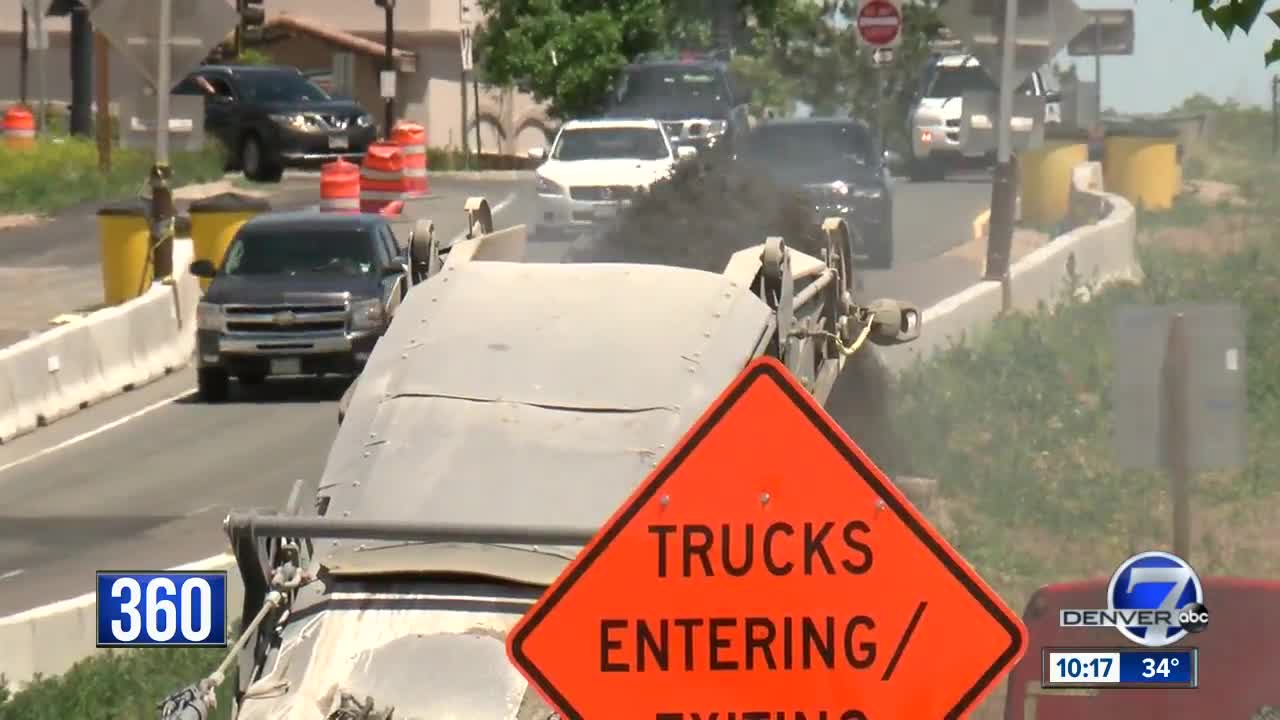Editor's Note: Denver7 360 stories explore multiple sides of the topics that matter most to Coloradans, bringing in different perspectives so you can make up your own mind about the issues. To comment on this or other 360 stories, email us at 360@TheDenverChannel.com. See more 360 stories here.
DENVER – Two propositions on this year’s ballot are aiming to improve traffic and roads in Colorado but have different approaches.
Proposition 109, known as Fix Our Damn Roads, includes no tax increase and will require the state to spend $2 billion worth of additional money on state road projects. The state legislature has already required $1.5 billion in spending on roads for a total of $3.5 billion.
Proposition 110 includes wide-ranging improvements to city, county and state roads to the tune of $18 billion, but requires a statewide sale tax increase that lasts for 20 years. The tax increase is .62 percent.
As examples, the increase equates to an additional .62 cents per $100 spent. A $25 cell phone case would cost an additional .16 cents. A $700 cell phone would cost $4.34 more. A new $20,000 car will cost you $124 more.
The estimated $18 billion will be spent as follows if voters approve Proposition 110:
- 45 percent to state road projects
- 20 percent to cities
- 20 percent to counties
- 15 percent to mass transit, bike and walking lanes.
Cities and counties would get to choose how to spend their share of the money on transportation, individually.
The Colorado Department of Transportation has identified more than 100 projects across the state that would be completed with money from Prop 110, including making Interstate 25 at least three lanes from Fort Collins to Colorado Springs.
Views from those in favor of Proposition 110
Lone Tree Mayor Jackie Millet is a self-described Republican who fully backs 110 and its tax increase.
“It's very difficult to stand up in front of people and quite honestly say 'I think we need to raise a tax.' I came to this very reluctantly," she said.
It’s her view that Proposition 110 is necessary to tackle the traffic problem and she’s tired of waiting on the state legislature to tackle a significant fix.
"The gas tax has not been increased for a quarter of a century. I don't know any business that could exist on revenues that are almost three decades old," she said. "I've sat and watched our senators and representatives try and negotiate money for transportation for 10 years and it just isn't coming."
Another supporter of Proposition 110
The owner of Plumbline Services, a heating and plumbing company based in Centennial, said his friends were surprised to learn he supports the proposition too.
"Typically I'm not a big fan of taxes," Bob Logan said. The traffic is costing his business money, he says, because drivers are on the road longer going to and from jobs.
The view of one of his drivers who spends time in traffic is that something must be done. Master plumber Steve Bowen says what he knows is that traffic has increased significantly in his two decades on the road in Colorado. If he could get to jobs faster, he could he be more productive, he said.
The Alternative
“It’s a blank check,” said Jon Caldara. He runs the conservative-leaning Independence Institute in Denver.
He says Prop 110 does not require or spell out in law what the money must be used for specifically.
"There’s no way to know how much of [the money earmarked for] cities and counties [would] go to transit or even open space," he said.
In his view, Proposition 109 is better because it identifies specific state projects and includes them in the law itself.
"What Fix Our Damn Roads says is: Wait a second, now that we have so much in surplus, use a small portion of that to get roads built!" Caldara said.
The proposition requires the legislature to decide how to fund the required road spending. Some worry cuts could have to be made to other state programs to pay for the road spending if surplus money isn’t available.
He agrees his plan will tackle only some state roads but says cities or counties could pass their own tax increases if residents felt it was appropriate.
Millet worries that would be a problem if one city improved its roads and a neighboring city did not.
"It doesn’t do me any good to have a great system in Lone Tree if people head east a few miles and hit Parker and come to a screeching halt or head north to Centennial and come to a screeching halt. This is a system that works well together,” she said.
Caldara doesn’t describe Prop 109 as a fix for all traffic. But he says it’s a step in the right direction that doesn’t require a tax increase and could be funded by state surplus money. The state forecasts a $1 billion excess for this fiscal year, but much of that money is already spoken for.


